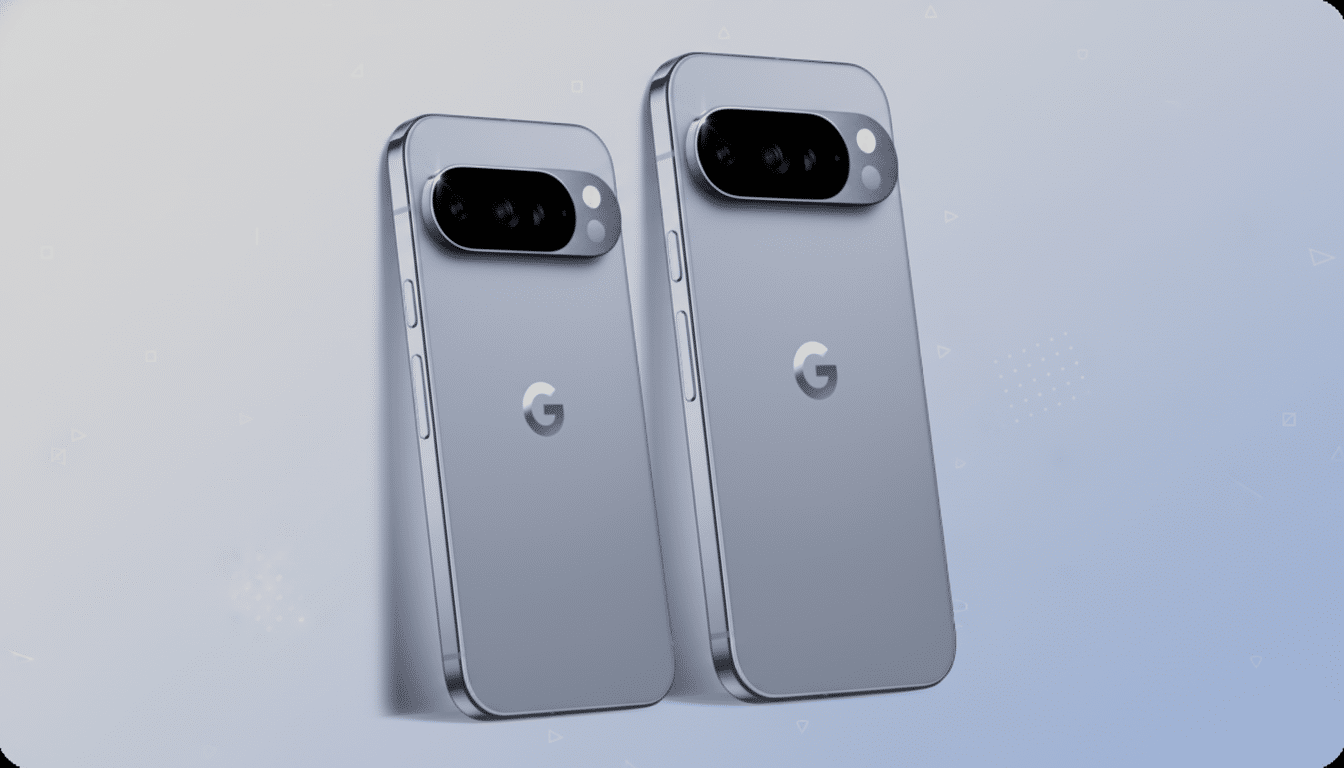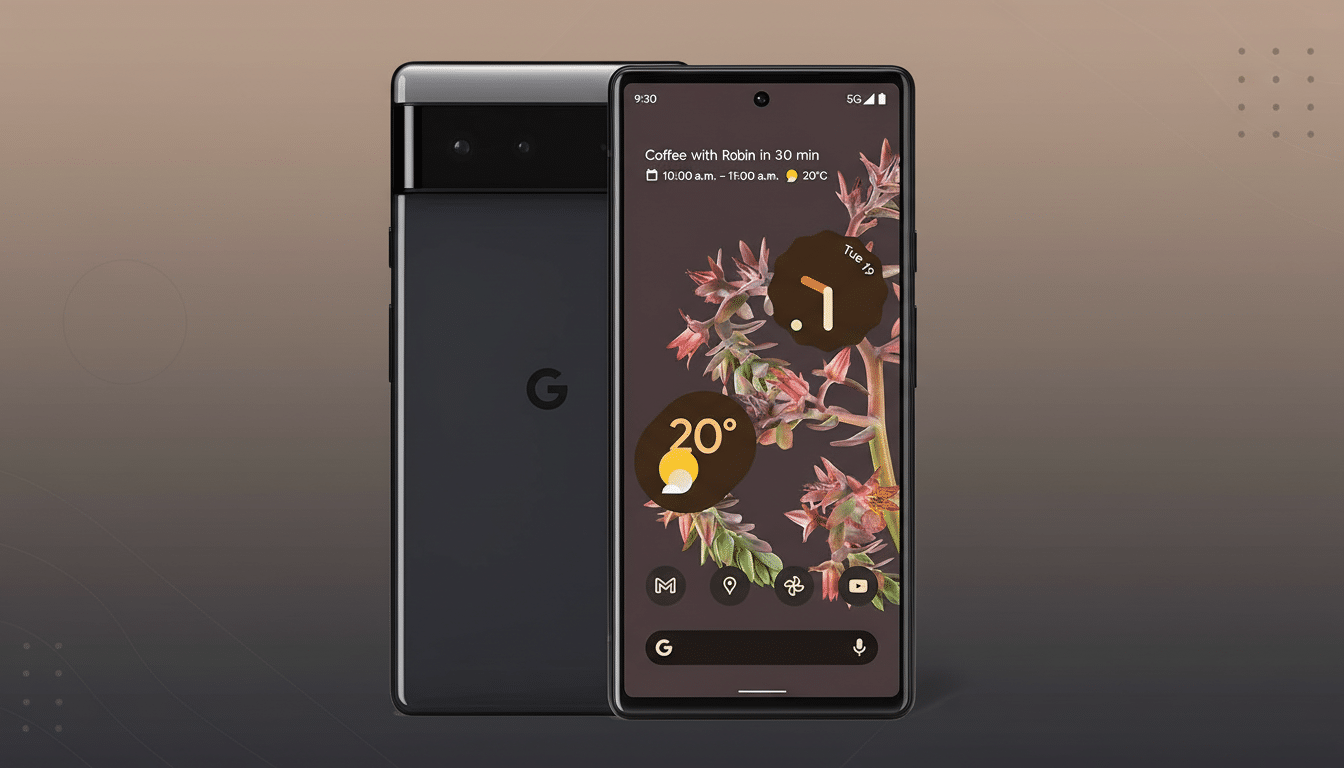Google’s new #BestPhonesForever short tosses the Pixel–iPhone feud down to Oz, fashioning an energetic “Wicked” crossover that’s also a little flex for AI and some disparate film product placement.
If you’re wondering what is going on, the animated spot has the iPhone transforming into a bedazzled Glinda-style convert who sings praises to the Pixel for helping it “find” itself via artificial intelligence — before each promptly signs off in a sassy show-tune duet.
- What the new Pixel–iPhone crossover video really shows
- Why Google is belting out AI tunes in ads right now
- The larger cross-promo campaign around Wicked’s release
- Reading the subtext behind Google’s playful rivalry
- Does the gag work for audiences new to Wicked?
- Bottom line: what this musical crossover signals now

What the new Pixel–iPhone crossover video really shows
The short is similar to the series’ familiar setup: a self-assured Pixel instructs a dewy-eyed iPhone. This time, the script employs “Wicked” tropes — self-discovery, friendship, and a dash of theater-kid melodrama. iPhone spouts off that Pixel opened its eyes to AI-first features, then starts singing with stagey harmonies. Aesthetic cues and rhythm tip their hats to familiar showstoppers like “Popular” and “For Good,” but without quoting them verbatim. The last beat is on-brand: adversaries, if also pals — more “curtain call” than cage match.
Why Google is belting out AI tunes in ads right now
“There’s a meta narrative to all the camp,” O’Brien continued: “Pixel = AI-native.” Google has spent the past two device cycles branding Pixel as the phone where generative features aren’t bolt-ons, they’re baked in — on-device transcription, multimodal search, and image tools powered by its Gemini models. The musical framing allows Google to gently mock the competition while positioning its AI chops as the industry’s true north.
The timing is strategic. Industry reporting (via outlets like Bloomberg) has chronicled how Apple went as far as considering a license for Google’s Gemini for some assistant tasks, casting the stage in a new era where who you’re calling your AI partner is as important as what silicon you fancy. Casting the iPhone as a student in this sketch nods to that story without explicitly citing deals or timelines. It’s theater as market signal.
The larger cross-promo campaign around Wicked’s release
The video isn’t a one-off. Google has stacked a larger “Wicked” push across products and fan touchpoints. The film’s palette has extended to wallpapers, icons, and accents via the ever-evolving Android Theme Manager — you can’t un-hear Kristin Chenoweth rendering “Popular” in new wallpaper form, trust me. Previous activations included a playful Search Easter egg for the first film, which followed other pop-culture tie-ins like Mandalorian AR effects or Pixel-shot sports highlights.
Cross-promotion makes sense here. Universal’s “Wicked” franchise comes with built-in cultural fluency and a broad demographic potential audience, assisting Google in reaching casual moviegoers and musical superfans in one fell swoop. The #BestPhonesForever series is already proven sticky — some episodes have hit multimillion views on YouTube — so folding a blockbuster property into that format simply dials up the volume.

Reading the subtext behind Google’s playful rivalry
There’s more than whimsy at work. The iPhone’s “identity” line cleverly shifts the conversation about smartphones from hardware supremacy to software intelligence. Google’s thesis: This next cycle of differentiation will be determined by how well phones can reason, summarize, compose, and assist — optimally all on-device. That jibes with how Google markets Gemini Nano for edge workloads and Gemini Advanced in the cloud for more demanding jobs.
It’s also a deft way to tackle platform perceptions without getting into a fight. Apple has a strong cult-of-Apple reputation for its ecosystem consistency, performance, and privacy. Google threads the needle by allowing the iPhone to stay beloved but indicating it’s lost when it comes to artificial intelligence — with Pixel as sherpa. The tone stays friendly enough to be shareable, not tribal.
Does the gag work for audiences new to Wicked?
If you’re fluent in “Wicked,” the arc lands as an affectionate parody. If you’re not, it can seem surreal — a Broadway beat in a phone ad. But that’s a little bit the point: memorable beats travel. On all fronts, our entertainment marketing research reveals that consumer following blasts into the stratosphere, known IP drives memory and rewatch rates upwards — in turn sending efficiency soaring. And for Google, a hummable punchline is not a bug but a feature.
For impact, the tie-in simply underlines a simple headline: Pixel wants to own the AI-first phone story at a time when iPhone’s AI era is still coalescing. The duet is sugarcoated, but the message is plain. In a market starving for attention, a show tune might be the most economical way to have the last word.
Bottom line: what this musical crossover signals now
Google’s “Wicked” iPhone video is a dense narrative of brand theater — one part fandom play, one part current-rivalry satire, and still another something-must-be-done treatise on AI. It extends an existing entertainment partnership, promotes new Pixel themes, and plants a stake in the ground that the next smartphone loyalty war will be won by whoever has the best on-device intelligence. The curtain call? Pixel and iPhone stroll off into the sunset together, but make no mistake, the lead vocal is AI.

